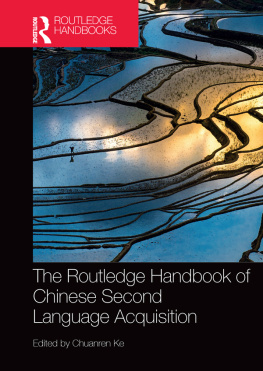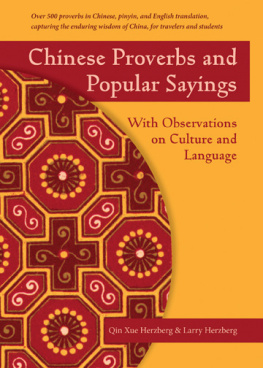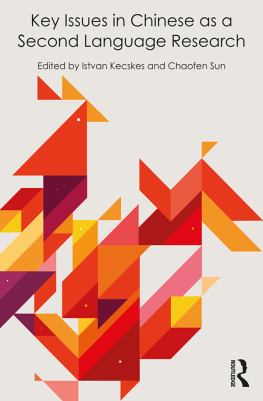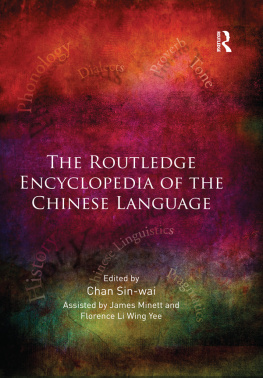Soft Power and the Worldwide Promotion of Chinese Language Learning
MULTILINGUAL MATTERS
Series Editors: John Edwards, St. Francis Xavier University, Canada and Dalhousie University, Canada and Leigh Oakes, Queen Mary, University of London, UK .
Multilingual Matters series publishes books on bilingualism, bilingual education, immersion education, second language learning, language policy, multiculturalism. The editor is particularly interested in macro level studies of language policies, language maintenance, language shift, language revival and language planning. Books in the series discuss the relationship between language in a broad sense and larger cultural issues, particularly identity related ones.
Full details of all the books in this series and of all our other publications can be found on http://www.multilingual-matters.com, or by writing to Multilingual Matters, St Nicholas House, 31-34 High Street, Bristol BS1 2AW, UK.
MULTILINGUAL MATTERS: 167
Soft Power and the Worldwide Promotion of Chinese Language Learning
The Confucius Institute Project
Jeffrey Gil
MULTILINGUAL MATTERS
Bristol Blue Ridge Summit
DOI: 10.21832/GIL8057
Library of Congress Cataloging in Publication Data
A catalog record for this book is available from the Library of Congress.
Gil, Jeffrey, author.
Soft Power and the Worldwide Promotion of Chinese Language Learning: The Confucius Institute Project/Jeffrey Gil.
Bristol; Blue Ridge Summit: Multilingual Matters, [2017] | Series: Multilingual Matters: 167 | Includes bibliographical references and index.
LCCN 2016054518| ISBN 9781783098057 (hbk : alk. paper) | ISBN 9781783098071 (epub) | ISBN 9781783098088 (kindle) | ISBN 9781783098064 (Pdf)
LCSH: Chinese languageStudy and teachingForeign speakers. | Language and cultureChina. | ChinaSocial life and customs. | Chinese languageHistory. | Chinese languageGlobalization.
LCC PL1065 .G45 2017 | DDC 306.44/951dc23 LC record available at https://lccn.loc.gov/2016054518
British Library Cataloguing in Publication Data
A catalogue entry for this book is available from the British Library.
ISBN-13: 978-1-78309-805-7 (hbk)
Multilingual Matters
UK: St Nicholas House, 31-34 High Street, Bristol BS1 2AW, UK.
USA: NBN, Blue Ridge Summit, PA, USA.
Website: www.multilingual-matters.com
Twitter: Multi_Ling_Mat
Facebook: https://www.facebook.com/multilingualmatters
Blog: www.channelviewpublications.wordpress.com
Copyright 2017 Jeffrey Gil.
All rights reserved. No part of this work may be reproduced in any form or by any means without permission in writing from the publisher.
The policy of Multilingual Matters/Channel View Publications is to use papers that are natural, renewable and recyclable products, made from wood grown in sustainable forests. In the manufacturing process of our books, and to further support our policy, preference is given to printers that have FSC and PEFC Chain of Custody certification. The FSC and/or PEFC logos will appear on those books where full certification has been granted to the printer concerned.
Typeset by Deanta Global Publishing Services Limited.
Printed and bound in the UK by the CPI Books Group Ltd.
Printed and bound in the US by Edwards Brothers Malloy, Inc.
Contents
Throughout this book I present important Chinese terms in Chinese character s, the Pinyin Romanisation system ( hny pnyn ) and English on their first use within the text. All subsequent uses of the same term are presented in English only.
I present Chinese personal names according to the Chinese custom of placing the family name first followed by the given name. All Chinese personal names, as well as place names, are spelt according to the Pinyin Romanisation system.
Many people provided help and assistance in the preparation of this book. Firstly, I would like to thank the participants in this study for their time and cooperation, which made my research possible. Much of the research and writing of this book was undertaken during two periods of study leave in 2010 and 2013. I thank Flinders University for providing these opportunities to concentrate on my research. I also undertook two fieldwork trips to China while on study leave, during which I visited several institutions and spoke to several people about my research. I will not name these institutions or people in order to maintain their anonymity, but I am grateful to them all for their assistance.
I would also like to thank the following people for the various kinds of assistance they provided: the anonymous reviewer provided useful comments and suggestions on the whole manuscript; Gwendolyn Campbell read and commented on drafts of ; Stefano Bona located and translated information about the Dante Alighieri Society; Eric Bouvet assisted with the translation of information about the Alliance Franaise; and Anna Roderick and Kim Eggleton at Multilingual Matters commissioned the book and responded to my queries during the writing and publication process.
The biggest thanks must go to my family, who offered support and encouragement throughout the writing of this book. In particular, my wife Lin Han () has been a constant source of understanding, reassurance and advice, even though she has had her own research to work on. Han also read and commented on drafts of most of the chapters of this book, either in whole or in part. Our son Alexander provided many welcome and often entertaining distractions from the writing process. While I was writing this book, we also discovered we would soon have another son joining our family, and Nicholas is indeed a welcome addition. This book is dedicated to my wonderful wife and sons.
Finally, parts of this book draw on my previously published works. include some material from Gil, J. (2014) An exploratory study of why language learners opt for Chinese and its competitiveness as a world language. Journal of the Chinese Language Teachers Association 49 (1), 5193 (The Chinese Language Teachers Association). I would like to thank the publishers for permission to reprint this material.
Chinas rise, or more accurately re-emergence, is occurring in a world political system which is arguably more complex than that faced by any previous rising power (Buzan & Cox, 2013; C.R. Jin, 2013). A distinguishing feature of the contemporary world political system is the accelerating processes of globalisation, or the deepening, expanding and intensifying of interconnections across the world. These interconnections are constituted through the global flows of people, objects, images, ideas and information in almost all dimensions of life, from the public to the private (McGrew, 1992; Scholte, 2005). One of the most easily noticeable and experienced dimensions of globalisation, however, is the cultural dimension, manifested in global flows of languages, films, music, food and religions, to give just a few examples. These and other elements of culture have, of course, long flowed around the world, but this now happens on a far larger and more significant scale, facilitated by improvements in transportation and communications technology. It is possible to argue that [t]here is no historical equivalent of the global reach and volume of cultural traffic we experience today (Held et al ., 1999: 327). Global cultural flows show considerable diversity in their content, origins and directions, meaning that it is more fitting to think in terms of cultural globalisations , rather than cultural globalisation (Hopper, 2007).
This notion of many different cultural globalisations applies to Chinas experience. Chinas embrace of the current phase of globalisation as a means of facilitating its modernisation and development has exposed it to a range of global cultural flows originating from outside China, yet China also sees globalisation as an opportunity to advance its own influence and interests, and has set about promoting elements of Chinese culture throughout the world. This book maps and evaluates one aspect of Chinas participation in cultural globalisations, its worldwide promotion of Chinese language learning through the Confucius Institute project. As the Confucius Institute project recently celebrated its 10th anniversary with World Confucius Institute Day, held on 27 September 2014, now seems an appropriate time to undertake this task. This introductory chapter charts the terrain of my investigation of the Confucius Institute project. It begins with a brief historical background to Chinas participation in cultural globalisations, particularly as it applies to language. It then discusses how the promotion of Chinese language and culture connects to Chinas efforts to employ soft power to facilitate its rise in the contemporary world political system. Finally, it presents the central questions this book addresses and the methods used to do so.
Next page
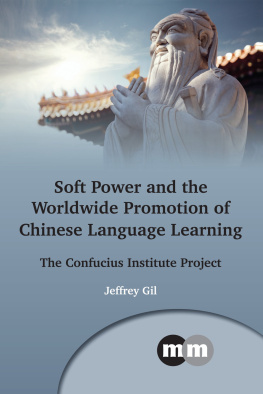


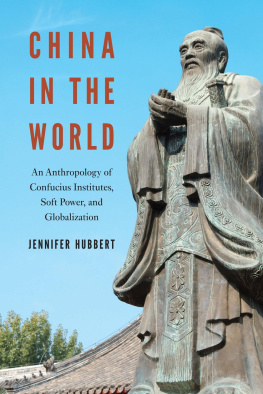
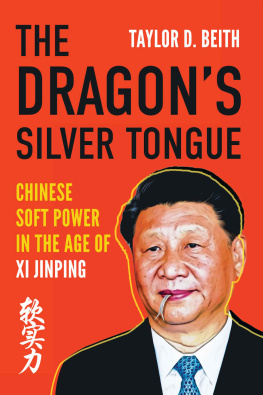

![Yi Ren - Mandarin Chinese for Beginners: Learning Conversational Chinese / Mastering Conversational Chinese [Book]](/uploads/posts/book/146887/thumbs/yi-ren-mandarin-chinese-for-beginners-learning.jpg)
